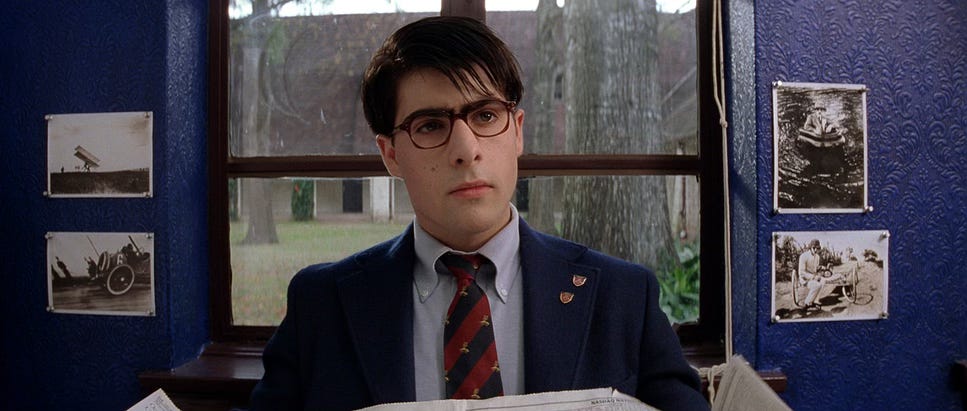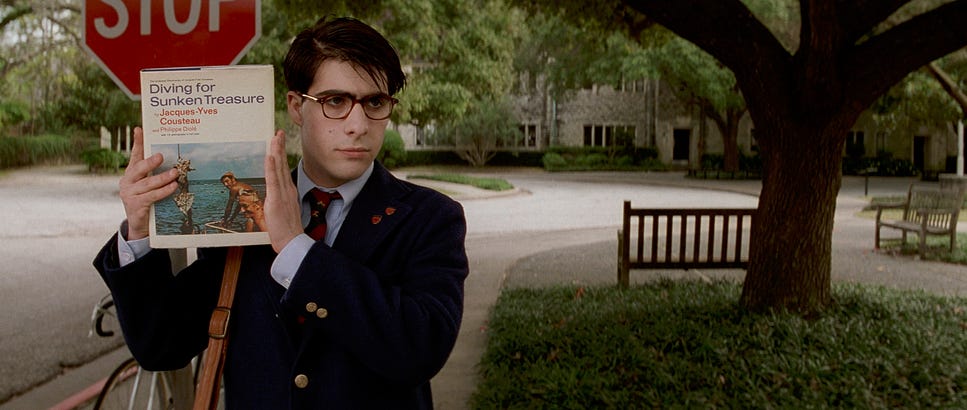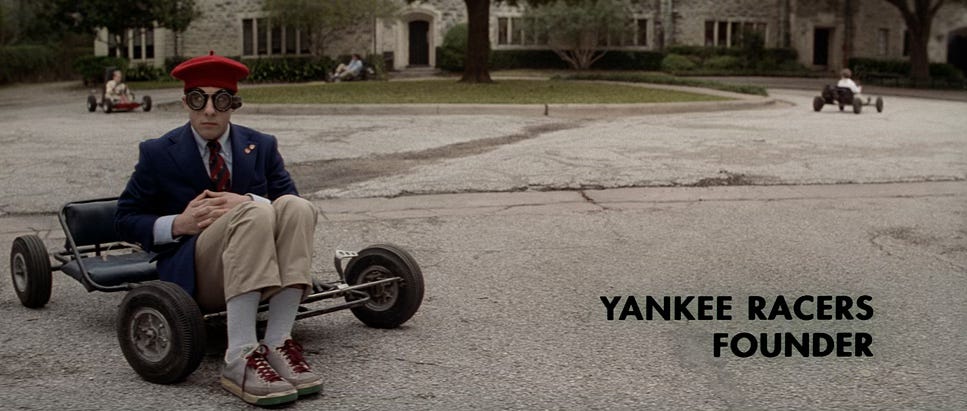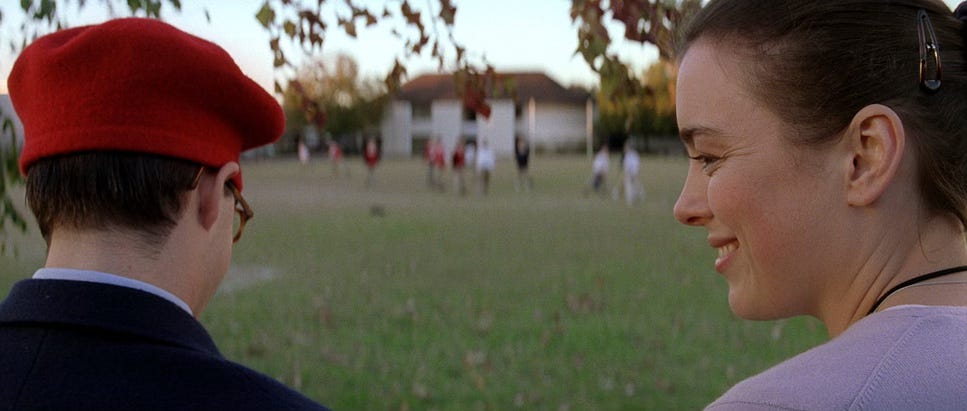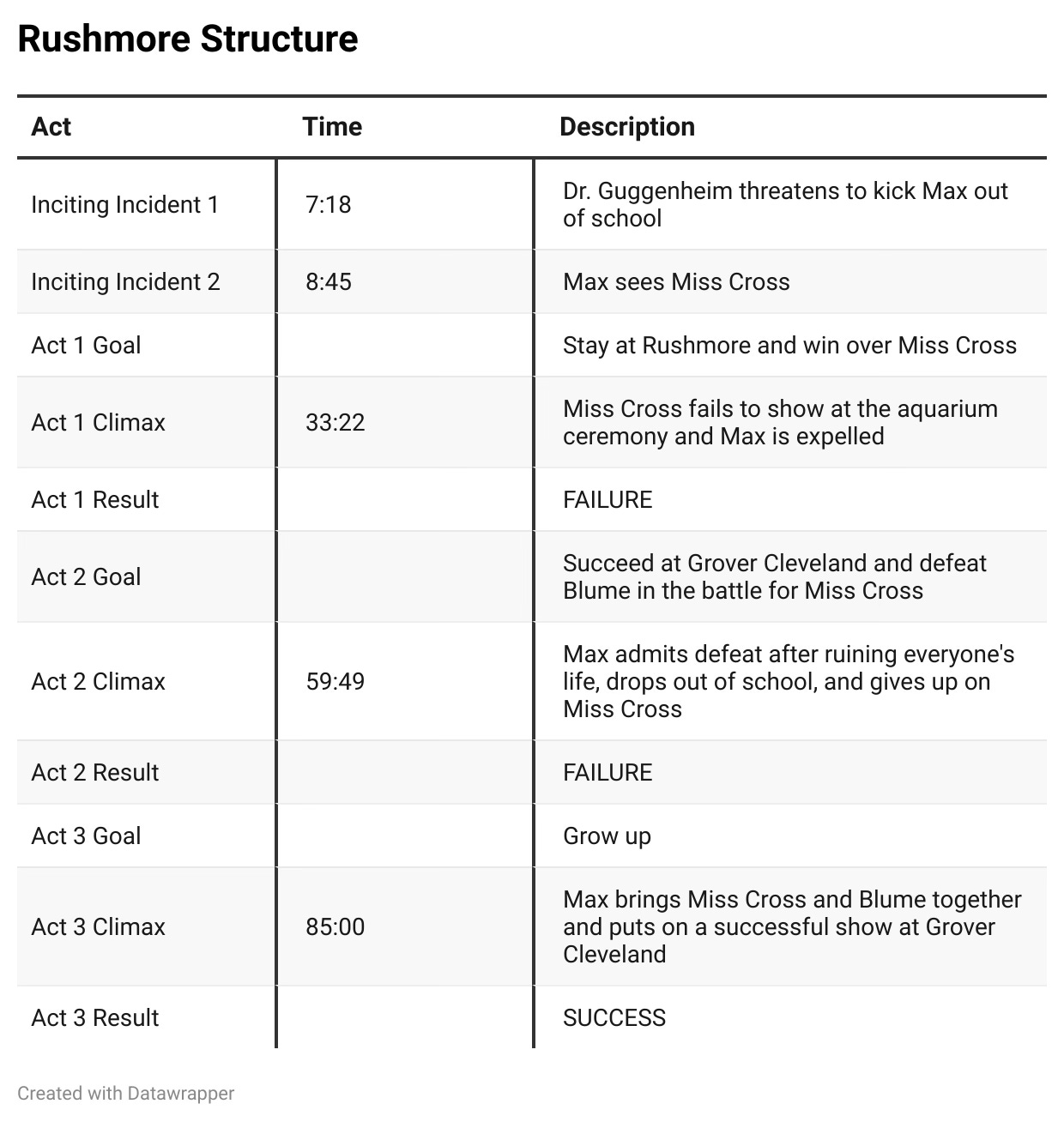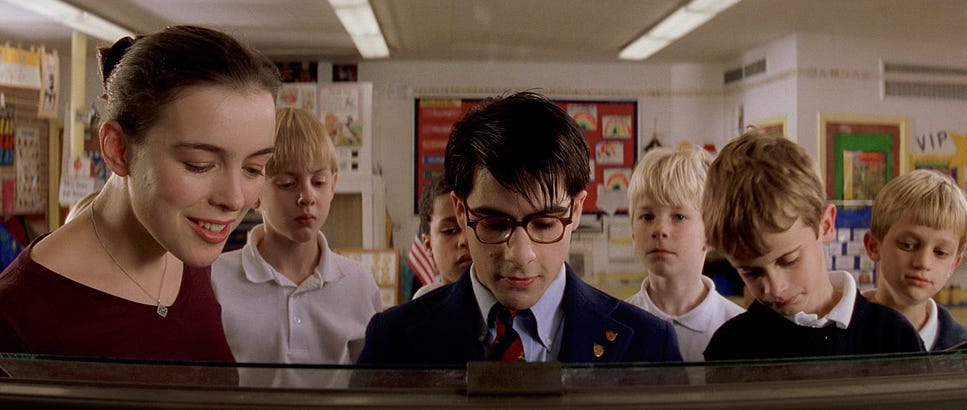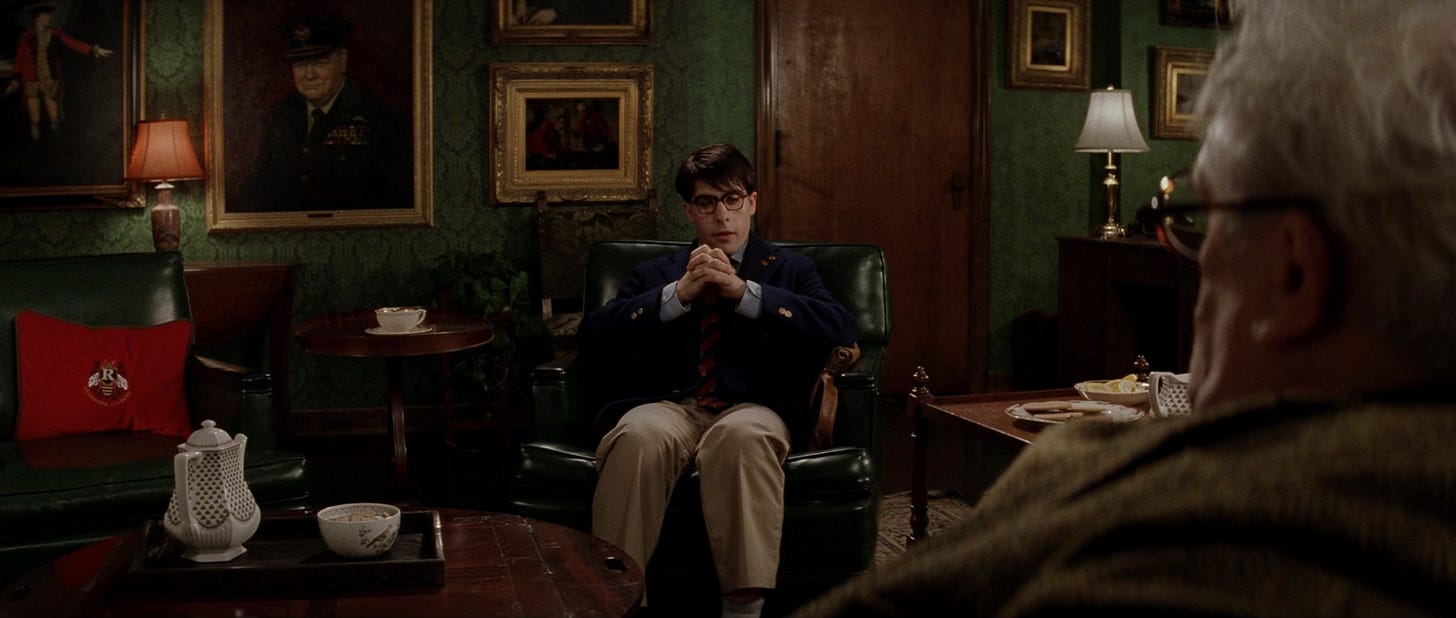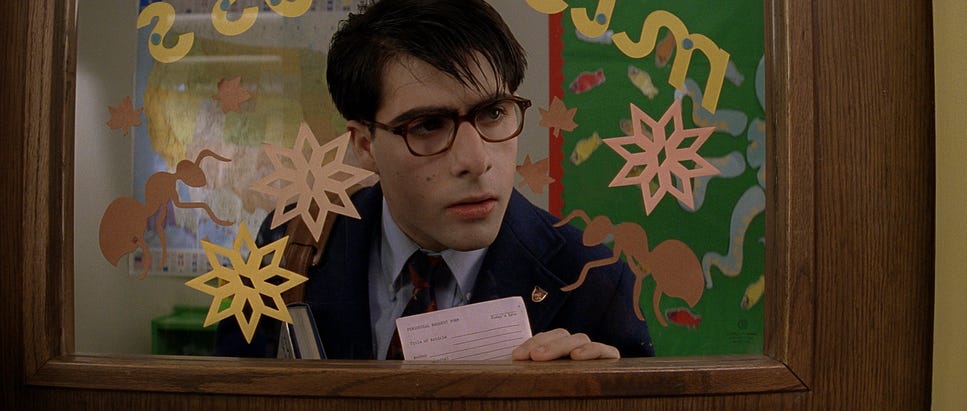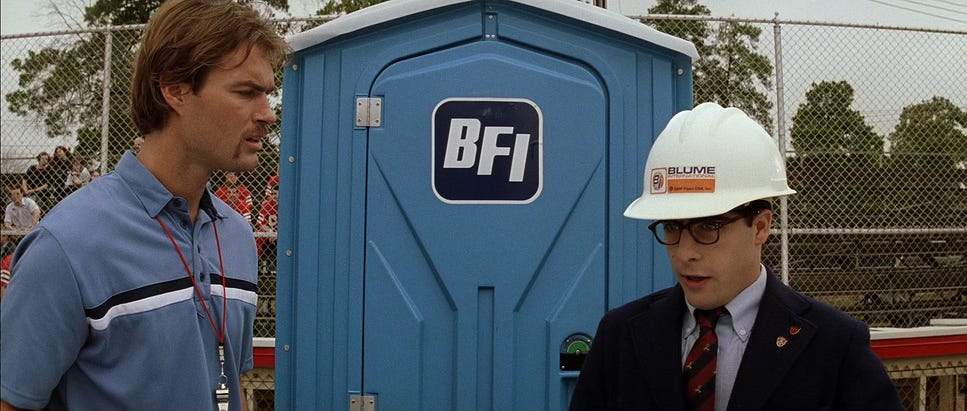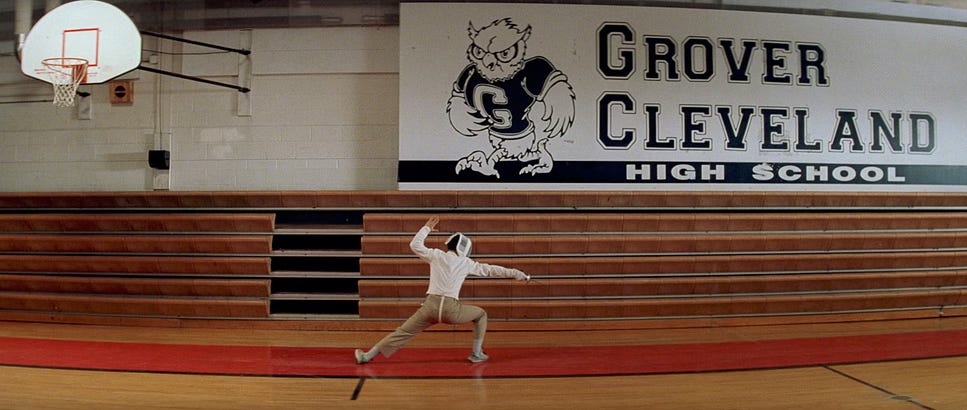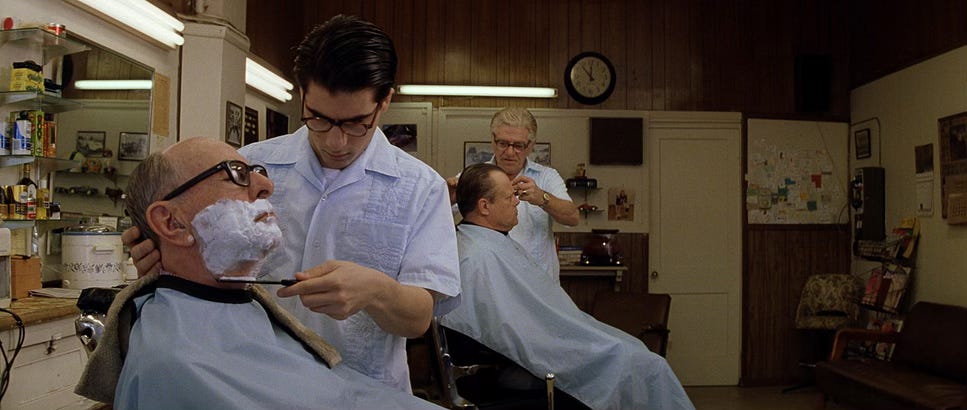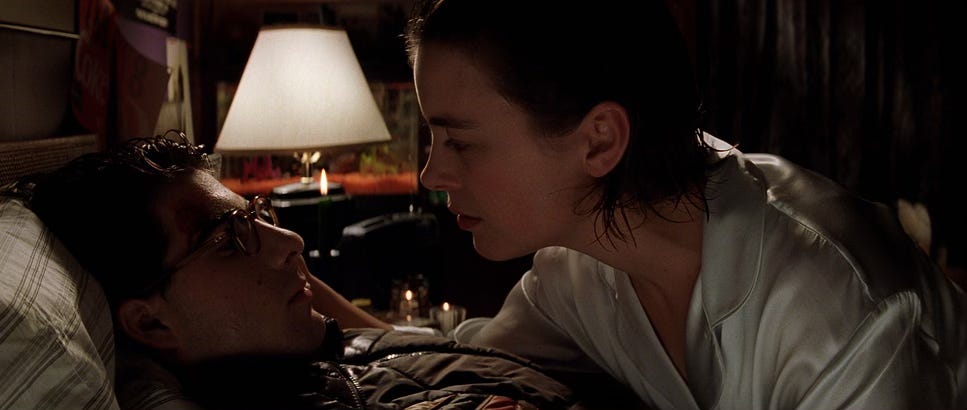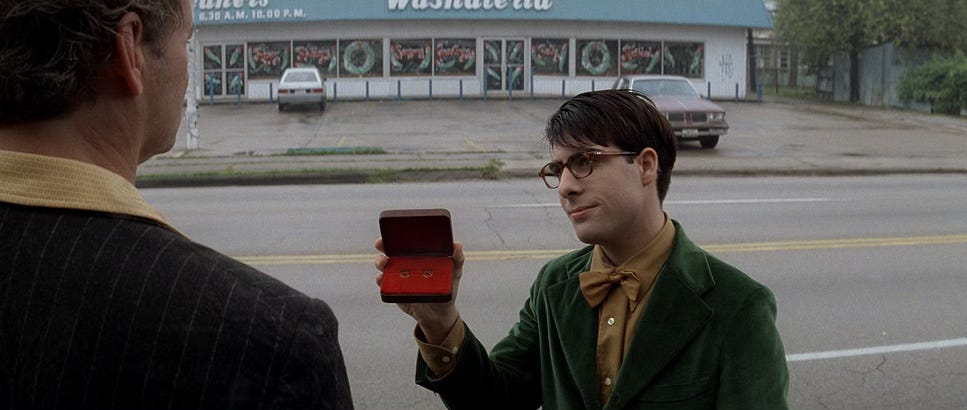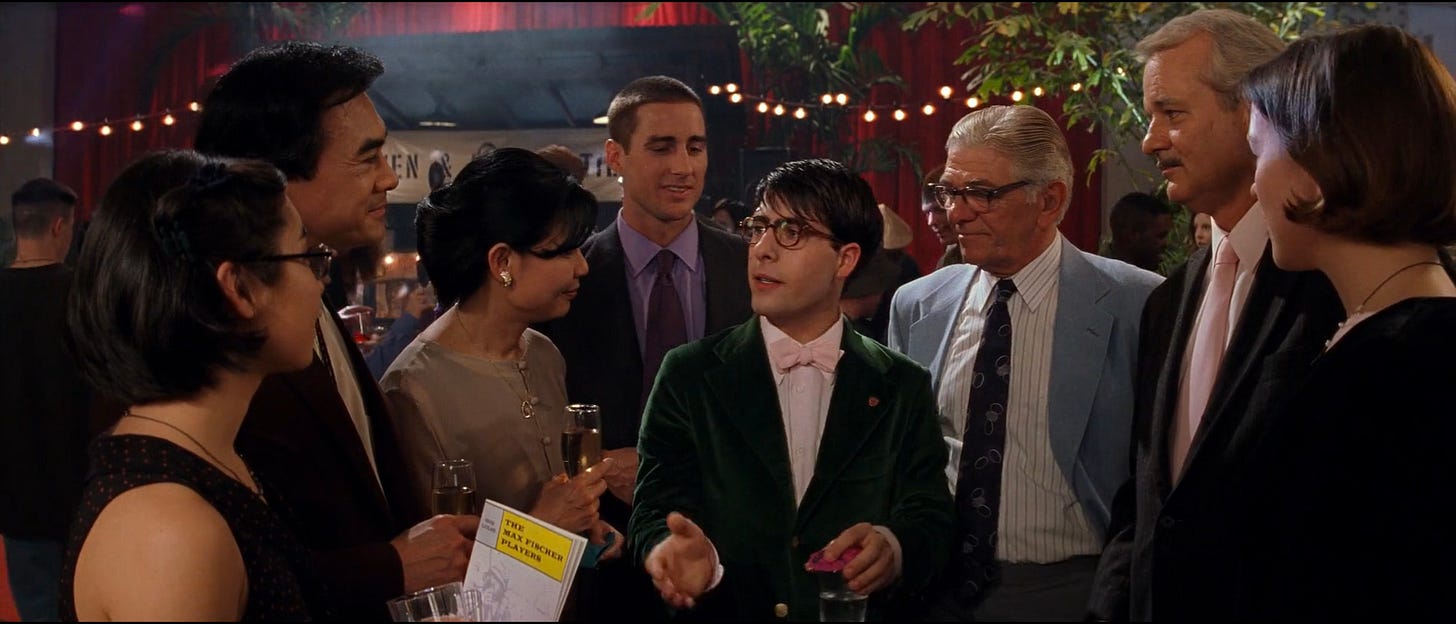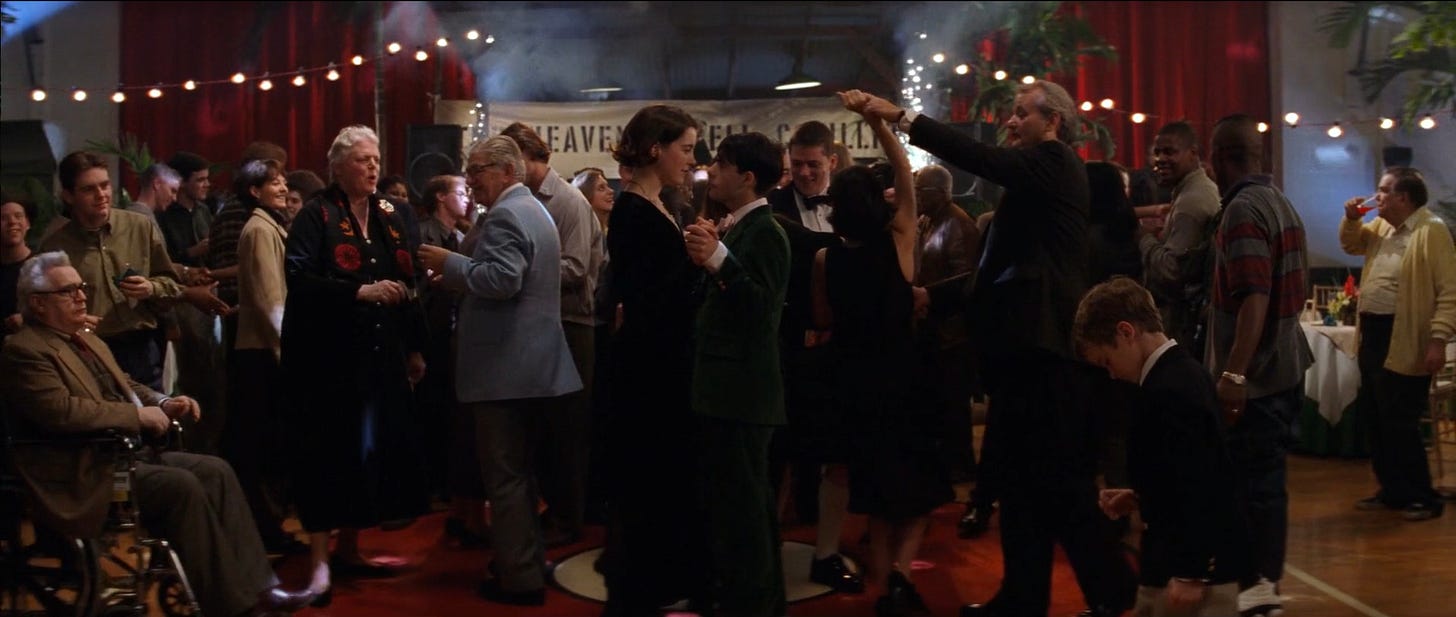Rushmore Structure Breakdown
Rushmore, starring Jason Schwartzman, Bill Murray, and Olivia Williams, is one of my favorite movies, and is definitely my favorite Wes Anderson film (and probably always will be). As Anderson’s second feature film, it doesn't feature the full twee, not quite real, heavily stylized approach of his later films. In this sense it is similar to Bottle Rocket, The Royal Tenenbaums, and The Darjeeling Limited in having a more balanced approach between the not quite real and real worlds. I also deeply admire its structure. While Anderson is known mostly as a formal stylist, some of his films also display a complex and layered structure and Rushmore is no exception.
As always, these breakdowns contain SPOILERS, and are only recommended if you've already seen the movie. You can check my introduction to these breakdowns, to get an overview of my process and philosophy.
Feel free to let me know what you think in the comments below!
The Basics
Director: Wes Anderson
Writers: Wes Anderson, Owen Wilson
Release Date: 1998
Runtime: 93 Minutes
IMDB: https://www.imdb.com/title/tt0128445/?ref
Movie Level Goals
Protagonist: Max Fischer
External: Be successful at school
SUCCESS | FAILURE | MIXED
Max eventually settles in to Grover Cleveland High School
Relationship Goal: Win Miss Cross (Failure) or Find Love (Success)
SUCCESS | FAILURE | MIXED
Max settles for friendship with Miss Cross and a relationship with Margaret
Internal Goal: Grow up
SUCCESS | FAILURE | MIXED
Max begins thinking of others before himself through setting up Miss Cross and Mr. Blume
Goal Relationship: Internal Goal leads to both External Goal and Relationship Goal Success
Three Observations
Observation #1: Two Loves: Rushmore and Miss Cross
In previous breakdowns, I’ve discussed the presence of relationships goals. They are a bit of a wild card and can operate in a variety of ways. In romances and romantic comedies, for example, the romance generally serves as the external goal that structures the movie. In these films, the protagonist has a separate internal goal that he or she must overcome in order to be in a relationship with the object of their love.
In action movies, on the other hand, the relationship goal is the internal goal providing meaning, while the structural external goal is linked to stopping the antagonist of the movie from successfully completely their crime, blowing something up, destroying the world, etc. This is true of a film like Die Hard, where John McClane’s external goal is to stop Hans Gruber, and his internal goal is to reunite with his estranged wife Holly. Succeeding at stopping Gruber allows him to succeed at being with Holly.
What makes Rushmore’s structure unique is the way it cleverly links the external goal of success at school with trying be with Miss Cross. In this sense, the relationship goal functions more externally than internally because it helps contribute to the structure, because in some ways it’s a surface level crush (though their friendship is deep), and because Max has a deeper internal goal. Let’s take a look.
At the beginning, Rushmore commits itself to this dual external/relationship goal structure by setting up two separate inciting incidents, one for each goal. The first is that the principal, Dr. Guggenheim threatens to kick Max out of school if he doesn’t raise his grades. Soon after, Max sees Miss Cross for the first time, reading Kidnapped by Robert Louis Stevenson, and is immediately smitten.
This is incredibly clever, because Max does want to stay at Rushmore, which he loves dearly, but having seen Miss Cross, he puts nearly all his efforts into being with her. He introduces himself and tries to impress her with his reading selection and discussion of his future goals, helps her with her fish tank, and becomes her unofficial assistant. As he spends more time with her, Miss Cross becomes increasingly uncomfortable with his attentions and allusions to love.
Eventually Max conspires with Mr. Blume to build an aquarium on school grounds to impress her. In the Act climax, without permission, he holds a groundbreaking ceremony for the aquarium which would require moving the baseball field. He invites Miss Cross, who fails to attend, and then when Dr. Guggenheim discovers his plan, Max is kicked out of Rushmore.
So, two seemingly unrelated goals (staying at Rushmore and having a relationship with Miss Cross) are cleverly linked and when one fails (Miss Cross avoids the groundbreaking) it leads to the failure of the other (he is kicked out of Rushmore for trying to build the aquarium without permission). It’s also quite clever that Max isn’t dismissed for his grades (though he surely would have been), but for the aquarium fiasco. This allows the film to speed up Max’s dismissal, not having to wait for the end of the semester. Additionally, with Max focusing his full attention on Miss Cross, he doesn't strongly pursue the goal of getting his grades up, which would not have been the most exciting subject matter for scenes.
Act 2 operates in a similar, though not identical manner. Max must attend Grover Cleveland High. While not happy, he attempts to give it his best shot, trying to set up more clubs (fencing) and putting on a new play. But his love for Miss Cross hasn’t diminished. Initially, he makes a show of being friends with Miss Cross and Mr. Blume, and along with Dirk, they almost become the perfect traditional family. But when he discovers that Miss Cross and Mr. Blume may be romantically involved, he sets out to defeat Blume and destroy any possible relationship between the two. Once again, his obsession with Miss Cross leads him away from his attempts to succeed at Grover Cleveland, and he ends up trying to kill Blume through a series of escalating, hilarious, and ultimately unsuccessful attacks (including unleashing bees into his hotel room and cutting the brakes to his car). However, despite the humor, the damage he causes is real: he is arrested, Mr. Blume’s marriage falls apart and Miss Cross is forced to leave Rushmore. Once again, the movie has cleverly linked the goals of trying to succeed at Grover Cleveland with his attempts to sabotage Mr. Blume and Miss Cross. By the end of the act, he has dropped out of school, given up on Miss Blume, and consigned himself to a life as a barber, like his father. All of this leads us to the final act, and Max’s final realization that he needs to grow up:
Observation #2: Growing Up is Hard to Do
Normally, a character’s internal goal is established in Act 1, and runs concurrently with the external goal. However, Acts 1 and 2 are already full with the external goal and relationship goal, leaving little room for the development of an internal goal. However, it’s clear to the audience (even if not to Max) that he must grow up. At the start of Act 3, he has mostly given up on life, and is still not pursuing an internal goal. In fact, shortly into the act, he discovers that Mr. Blume and Miss Cross are no longer together, and so concocts one last scheme to win her over, by pretending he has been hit by a car while riding his bike, and then climbing a ladder to her second floor window to seek her help. She lets him in, shocked by his appearance (and seemingly oblivious to the ladder). He immediately jumps onto the bed and puts on romantic music. Max’s plan almost seems to succeed as he kisses Miss Cross, who gently pushes him away, but doesn't get angry. But then she discovers the blood on his head is fake and kicks him out.
On the surface, it seems as if Max hasn’t changed at all. But the scene is one of the most beautiful and emotional scenes in the movie, and is the start of Max’s internal growth. Despite Max’s initial deception, rather than attempting to impress Miss Cross or pressure her into something, he actually does something he’s never done before—he listens and he tells the truth. Max and Miss Cross bond over the loss of loved ones (Miss Cross’s husband and Max’s mother). And though Max is seemingly cruel in quoting Mr. Blume, who says that Miss Cross still isn’t over the death of her husband, Edward Appleby, he’s actually right, and the tough love eventually seems to help Miss Cross begin the process of healing and moving forward with her life. When he attempts to kiss her, it is gentle and much different than the assaultive nature of his attempt at the end of Act 2.
While this is the start of Max’s growth and pursuit of the internal goal of maturing, he is also aided by his friend Dirk Calloway, his loyal younger friend, who despite being hurt by Max gives him a Christmas present (before he fakes being hit by the car), and then cleverly lures him into a chance meeting with Margaret Yang, which sparks Max to life, and gives him the idea to start a new kite flying club at school. From there, Max begins to mend fences, putting his friends before himself, and embracing the future, rather than looking back to his past at Rushmore. He starts wearing a new signature suit, instead of his old Rushmore uniform, invites Mr. Blume to the barber shop, admits his father is a barber and not a neurosurgeon, and in the climax writes a play about the Vietnam War, honoring Mr. Blume, setting up Mr. Blume and Miss Cross, and embracing the possibility of a relationship with Margaret.
Observation #3: A Wistful Ending
The film’s ending is quite clever, wistful, and bittersweet. After the success of the play and the reuniting of Miss Cross and Mr. Blume, Max has accomplished all of his goals. By putting on a successful play at Grover Cleveland, he has made new friends, and settled in at his new school. He (mostly) fulfills his relationship goal by starting a relationship with Margaret (who proudly proclaims to Mr. Blume that she is Max’s girlfriend). And he succeeds at his internal goal by putting the needs of others before his own, and in doing so, demonstrates he has grown up.
But the movie has one last emotional twist for us, that almost undercuts the previous goals, and turns a happy ending into a bittersweet one. At the after-performance party (The Heaven and Hell Cotillion), in which everyone from the movie reunites, Max’s dad encourages Max and Miss Cross to dance. Max has the DJ change the song to “Ooh La La” by The Faces. The movie moves into slow motion and Max and Miss Cross exchange wistful looks, filled with both gratitude and a little sadness. Miss Cross removes Max’s glasses, and then Max and Miss Cross step into the center of all the dancers (still in slow motion) and begin to dance looking into one another’s eyes. As the credits start to roll, we hear the song continue with the lyrics, “They trap you, then they use you/Before you even know/Well, love is blind and you’re far too kind/Don’t ever let it show/I wish that I knew what I know now /When I was younger /I wish that I knew what I know now /When I was stronger.”
Though they are settled and happy in their current relationships, Max with Margaret, and Miss Cross with Mr. Blume, the movie suggests that these two characters share something special, perhaps even love, and if circumstances were different, and Max were older or Miss Cross were younger, they might have even ended up together. It’s a daring ending, both in even suggesting that a relationship under any circumstances might have been possible, but also in almost undercutting the happy, wrapped up ending established in the previous scenes with a bittersweet one that hints at an alternate reality. It’s a reminder that life is complicated, people are complicated, and that our lives are ruled as much by chance (when we were born) as by choice. And from a narrative point of view, also shows us that we can wrap up a a story, show characters achieving their goals, but still hint at and suggest other possibilities. And this final act and the final scenes, more than anything else, are why I love Rushmore so much.

